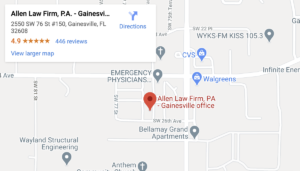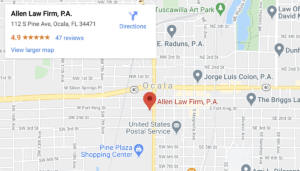
Having surgery while under general anesthesia terrifies most people, and for a good reason. General anesthetics are powerful drugs that render you unconscious and paralyze you. An error, even an innocent mistake, can have terrible consequences.
Studies on the likelihood of a medical error have produced a wide range of estimates. Some suggest that medical errors like anesthesia injuries cause as many as 250,000 deaths per year. If the higher estimates are true, medical errors would be the third-leading cause of death in the U.S.
In some cases, those who suffer from injuries caused when medical providers make mistakes may be able to seek compensation with the help of a medical malpractice lawyer.
Here is some information about the causes and effects of an anesthesia injury.
How Anesthesia Works

Local and general anesthetics work by blocking nerve signals between your body and brain. Nerve cells communicate by sending electrical signals. These electric signals get transmitted by the release of charged particles called ions.
The ions released by nerve cells include sodium ions. Local anesthetics block the sodium channels of nerve cells. This prevents them from communicating with each other.
As a result, you will lose sensation where the local anesthetic was administered. The nerve endings will still experience pain. But the local anesthetic blocks the pain signal from reaching your brain.
You will also lose some motor control. Motor signals travel from your brain to your body. The local anesthetic will block these motor signals from reaching the anesthetized area.
General anesthetics work differently. General anesthetics render you unconscious. They also attach to the opioid receptors in your brain. Your body still feels pain. But because the opioid receptors have caused a cascade of chemicals in your brain, your brain cannot sense the pain signals it receives.
Administering Anesthesia
Doctors administer local anesthetics topically or through an injection. Your doctor will choose local anesthetics for procedures that will involve some pain but for which you can remain conscious.
Since your body can break down the chemicals in local anesthetics, the numbing sensation will only affect the area where the doctor administers the drug.
Local anesthetics are used for outpatient procedures like:
- Dental surgery
- Arthroscopic surgery
- Skin surgery
- Minor wound repair
Doctors use general anesthetics when you need to be unconscious for a procedure.
Doctors weigh several factors when choosing to use general anesthetics, including:
- Duration of the procedure
- Invasiveness of the procedure
- Precision required
- Pain level involved
Bear in mind that if you remain conscious during a procedure, the doctor must account for your voluntary body movements and involuntary reflexes. Even if you remain still, your muscles and organs can still jump around when you remain conscious. By inducing unconsciousness, doctors have more control over the body parts under treatment.
An anesthesiologist usually administers multiple drugs to produce a general anesthetic effect. These could include drugs you inhale and drugs administered intravenously.
The Role of the Anesthesiologist
An anesthesiologist calculates and administers anesthetics. After administration, the anesthesiologist monitors you.
When you become unconscious, you become paralyzed. Your muscles relax, and you lose the ability to control them. This paralysis includes involuntary movements as well as voluntary movements.
As a result, you might lose the ability to breathe on your own. Your eye movements will stop. You will lose the ability to swallow or clear your mouth and throat if you vomit. Instead, the anesthesiologist must monitor you and provide respiratory support.
The anesthesiologist must tread a very fine line while you remain under general anesthesia. You must remain unconscious enough for the procedure. But too much anesthetic can cause a coma or death.
Examples of an Anesthesia Injury
During surgery with general anesthetics, you can suffer physical injuries. The position of your body during the procedure might result in muscle soreness after you awake. You might have a sore or dry throat, or damage to your teeth from the breathing support devices.
You could also experience injuries from the anesthesia itself. Some common anesthesia injuries include:
Wrong Drugs
An anesthesiologist can administer the wrong drug. This could happen due to a mistake by the pharmacist supplying the drugs. It could also happen if the hospital or doctor mixes up your records with another patient.
Allergic Reactions
You could have an allergic reaction to the anesthetic. Some people have opiate allergies, for example. Administering fentanyl, morphine, or other opiates can trigger an allergic reaction in these patients.
Overdose
An overdose means that the anesthesiologist calculated or administered too much anesthetic. As a result, the patient enters a deeper state of unconsciousness than planned. In severe cases, an overdose could put the patient into a coma or even kill the patient.
If the anesthesiologist realizes the mistake, doctors may revive the patient or provide supportive care until the anesthetic wears off. But if the overdose goes unnoticed, the patient might not get the support needed and may suffer brain damage or other injuries due to lack of oxygen.
Underdosing
An underdose means the dose of anesthesia failed to provide anesthetic effects. In the case of a local anesthetic, an underdose will cause you to feel pain during the procedure.
In the case of a general anesthetic, an underdose will cause you to remain conscious during your procedure. You will also feel pain. But you might be connected to a ventilator and unable to tell doctors what is happening.
Nerve Damage
Both local and general anesthetics can cause lingering nerve damage. You might experience nerve sensations unconnected with your medical procedure, including:
- Pain
- Numbness
- Tingling
- Weakness
This nerve damage might last long after your procedure. It might even have chronic or permanent effects.
Medical Malpractice and Anesthesia Injury
Under Florida law, medical malpractice happens when a healthcare provider fails to meet the prevailing professional standard of care. Healthcare providers must supply reasonably competent care compared to the industry standard.
This means that not every adverse outcome constitutes medical malpractice. Instead, you must show that the anesthesiologist committed an unreasonable error. In most cases, this means the anesthesiologist did something that no reasonable anesthesiologist would have done in the same situation.
If you can prove medical malpractice, you can seek damages to cover your medical expenses for treatment for your anesthesia injuries. You could also get reimbursed for income you lost during your recovery and seek compensation for your pain, anguish, depression, and anxiety caused by your injuries.
Anesthesia injuries that cause death could entitle the surviving family members to substantial compensation. To discuss an anesthesia injury suffered by you or a family member, contact an experienced medical malpractice lawyer near you.





